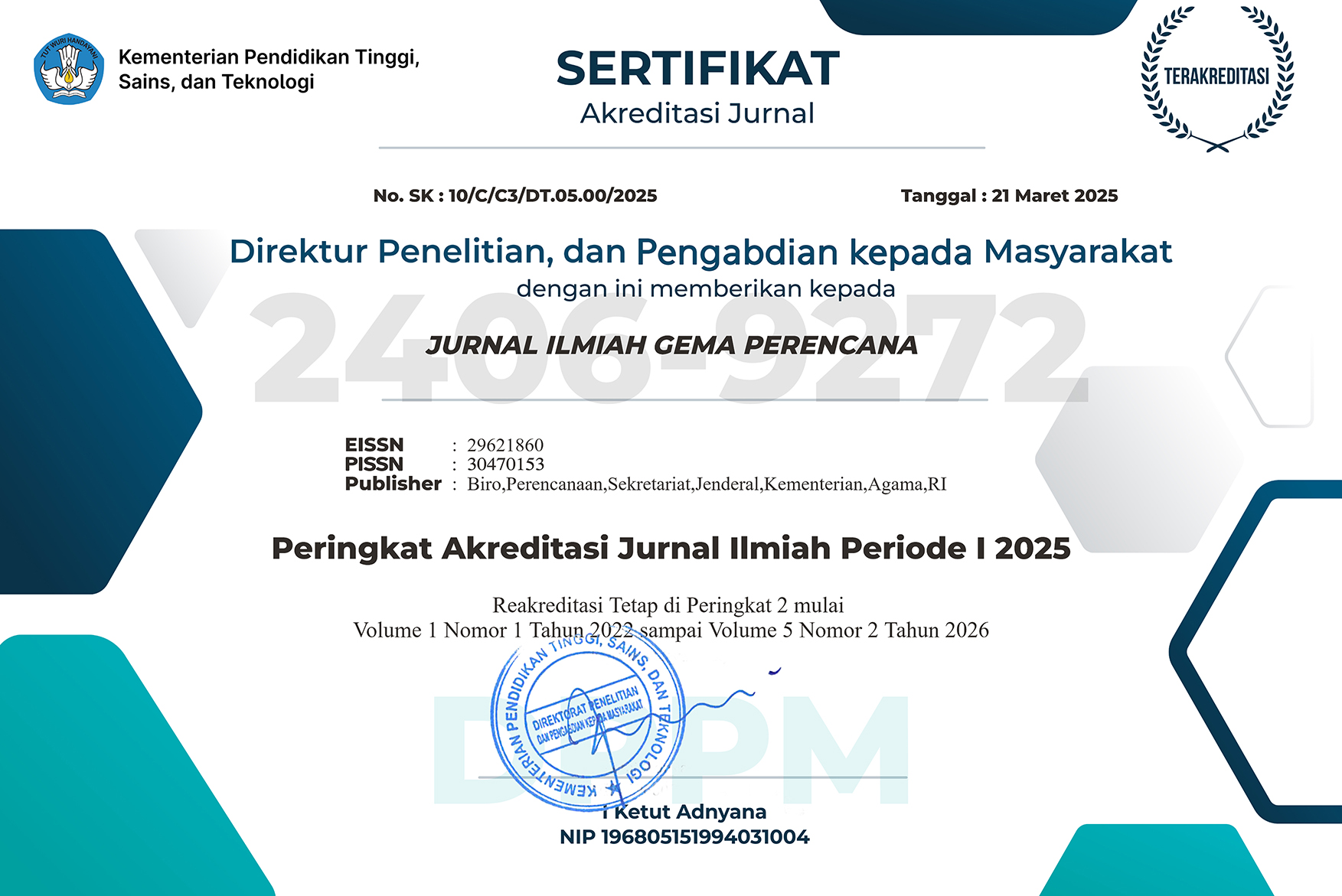The Effectiveness of Implementing the Smart ASN Application at the Office of the Ministry of Religion in Bungo Regency
DOI:
https://doi.org/10.61860/jigp.v2i1.22Abstract
This article aims to determine the effectivness of using SMART ASN Application in order to improve the monitoring of employees discipline in The Office of Ministry of Religion of Bungo Regency. The method used in this study is quantitative with descriptive approach through primary data was obtained by interview. Based on the identification of 15 respondents to the three indicators of effectiveness, goal attainment, integration, and adaptation, it is known that the implication of ASN SMART Application in increasing supervision of the discipline of the employees of The Office of Ministry of Religious Affairs of Bungo Regency has been carried out well but because there are still several obstacles in its application, it can be assessed as less effective. The obstacle is when the application cannot be accessed so employees must report their presence to human resources field and do the manual report.
Keywords: Effectivness, SMART ASN Application, Monitoring, Discipline
Downloads
References
Buku:
Handoko, T. H. (2017). Manajemen Edisi 2. Yogyakarta : BPFE.
Mardiamso. (2016). Efisiensi dan Efektifitas. Jakarta : Andy.
Milles, B. M., & Huberman, M. (2014). Analisis Data Kualitatif: Buku Sumber Tentang Metode-Metode Baru. UI-Press.
Sugiyono. (2013). Metode Penelitian Administrasi. Bandung : Alfabeta.
Wiratna, S. (2014). Metode Penelitian. Yogyakarta : Pustaka Baru Press.
Jurnal:
Arianto, D. A. N. (2013). Pengaruh Kedisiplinan, Lingkungan Kerja dan Budaya Kerja Terhadap Kinerja Tenaga Pengajar. Jurnal Economia, 9(2), 191–200.
Elizar, E., & Tanjung, H. (2018). Pengaruh Pelatihan, Kompetensi, Lingkungan Kerja terhadap Kinerja Pegawai. Maneggio: Jurnal Ilmiah Magister Manajemen, 1(1), 46–58.
Marwiyah, S., Septiandika, V., & Priastutik, W. S. (2022). Analisis Implementa Aplikasi SIAP Terhadap Tingkat Kepatuhan Hadir ASN di Bagian Umum Pemerintah Kota Probolinggo. JISIP (Jurnal Ilmu Sosial Dan Pendidikan), 6(3), 10088–10096.
Ramadhan, M. D., & Kurniawan. (2021). Sistem Informasi Presensi Mendukung Work From Home Berbasis Android pada Bank BTN Syariah Palembang. Bina Darma Conference on Computer Science (BDCCS), 3(3), 595–604.
Rifai, A., Novianti, H., Yunika, D., Ilmu, F., & Universitas, K. (2018). Penerapan Collaborative Customer Relationship Managemet (CRM) pada Sistem Presensi Online. Jurnal Sistem Informasi (JSI), 10(2), 1600–1611.
Sari, C. N., Heriyanto, M., & Rusli, Z. (2018). Efektivitas Pelaksanaan Program Pemberdayaan Masyarakat Berbasis Rukun Warga. Jurnal Ilmu Administrasi Negara, 15(1).
Setiawan, A. (2013). Pengaruh Disiplin Kerja Dan Motivasi Terhadap Kinerjakaryawan Pada Rumah Sakit Umum Daerah Kanjuruhan Malang. Jurnal Ilmu Manajemen (JIM), 1(4).
Yasin, M., Nasution, S. L., & Ikhsan, M. A. Al. (2022). Pengaruh Aplikasi Absensi Online dan Aparatur Labuhanbatu Information System (ALIS) Terhadap Disiplin Pegawai (Studi Kasus di RSUD Rantauprapat Kabupaten Labuhanbatu). JOEL : Journal of Educational and Language Research, 1(11), 1597–1608.
Downloads
Published
How to Cite
Issue
Section
License
Copyright (c) 2023 Raino Wiwoho, Fera Diana

This work is licensed under a Creative Commons Attribution 4.0 International License.








